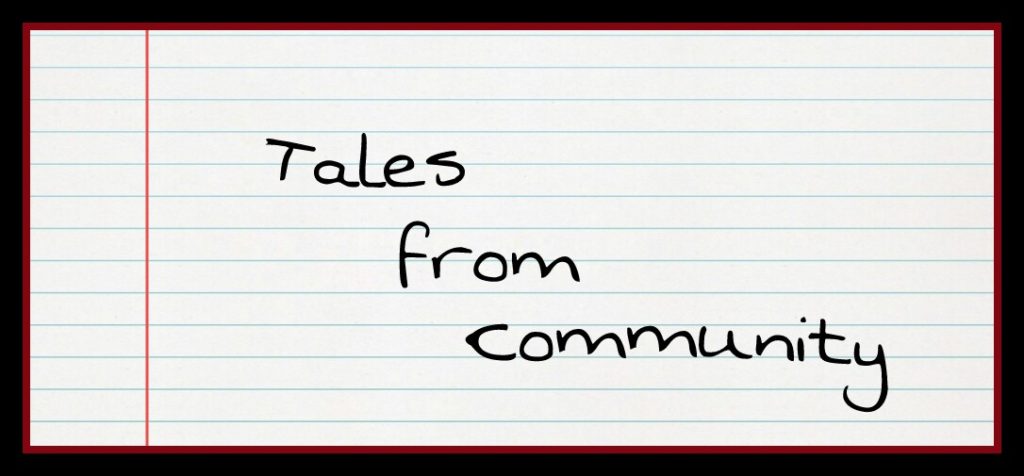One of the more difficult things in community can be personality clashes between members with vastly different communication styles. If your community features open communication, like a forum or a game, this should sound familiar. As community professionals, we aim to create a space where everyone feels good sticking around and spending their time (and sometimes money). You have to treat people like they matter, and knowing what’s important to them lets them know that they matter.
If one of your community members has an abrasive, blunt manner, but isn’t technically breaking any rules, it can turn some people off to the point of discomfort. If this is a veteran member, it might dissuade newbies from ever signing up, convince lurkers to stay silent, and eventually drive some others away. One blunt member isn’t typically going to ruin your community dynamics, but it can be different with many. You don’t want brash veterans to drive your newbies away because you need your new folks to stay in order to grow, so this situation is an example of something that has to be addressed. Word of mouth is too powerful to lose, so you have to make sure that your new members are sufficiently supported in more ways than one. Recently, The Community Roundtable published a brief guide on the value of supporting new members with proactive efforts.
Your community members choose to spend part of their day with a service, site, or app, so they have to feel welcome, listened to, and valued. You have to communicate this to community members of all communication styles — and mean it.
We have to ensure that veteran community members don’t trample on the newbies, send the message that there’s room for everyone, that everyone has a voice, and can feel comfortable. To start, having a clear set of rules will help set the tone on what kind of community you want to be. What are your organization’s goals, and how does community discussion fit into that? If your community is entirely text-based, that may cause a few problems since text communication is free of tone and vocal inflection. Context can help clarify meaning, as can the use of emoji, but it’s likely that some people won’t understand the intent, and this can lead to conflict.
Going back to the example of the harsh member (taken from a real example), if he has a very blunt style but is either toeing the line or not breaking any rules, there’s no reason to remove the member prematurely. Some might be calling for this person to be banned or punished, but creating a good experience for members also depends on not being an overly punitive environment. Having clear rules is a must, but emphasizing punishment is likely to turn many people off since they won’t feel free and comfortable to participate. Yet you also can’t ignore the people who message for help because they too feel uncomfortable with this member, and sometimes others like him, around.
Many members truly appreciate when you take the time to explain a situation or decision. If the particular incident was something borderline or mild, sometimes I would merely edit or delete the post and then send a message instead of an infraction. Other times I would issue the infraction, but message the user anyway.
Such messages would typically be something like this:
“It’s not just what you say, but how you say it. This came off as condescending and could be taken as insulting. If you could phrase it in a different way, it would not have earned you an infraction.”
Or
“I closed your thread because you said this game “is the worst game ever” but you didn’t include why you feel that way. While we encourage everyone to post positive or negative opinions, our rules here require you back them up with at least a couple of reasons, since that gives everyone something to discuss instead of seeming like argument bait.”
Sometimes the person doubled down, became irate, called us names, and got defensive. Other times, I received PMs in which members thanked me for explaining, or even for issuing a one-day ban or a similar infraction intended to let the person cool off. These types were often followed with a small, but notable shift in tone or style.
As in the greater world, people’s communication styles vary, their preferences vary, and their needs and what they get out of being in a community vary. So you need “people skills” to learn to decipher all of these, how they are alike and differ, and to treat everyone like humans whose voices matter. After all, they’re spending time with your site or product. You want them to continue finding value in being there. If you’re tuned in, you can see if someone’s being harsh and possibly driving your more casual contributors away, or if certain people are argumentative with specific others.
Don’t make your attention solely negative either. In some communities, members don’t see the community team or moderators’ presence unless something negative requires a reponse. Like it or not, this can create an association between ‘community team action’ and ‘bad’, so be present, and use your system for positive reinforcement too! If someone is particularly helpful to new members, for instance, or has a specialty the person is eager to share, find ways to reward that. We gave away special titles, shining a spotlight on helpful gestures or good posts, and had a way for people to nominate others for consideration. Paying attention to the dynamics involved in a community is important. I can never emphasize enough the importance of being right there, immersed, and tuned in. This, coupled with attention to detail, intuition, and a good understanding of people, as well as a love for people, helps you learn how everyone interacts, how they connect, and why they do, or don’t do, certain things.

